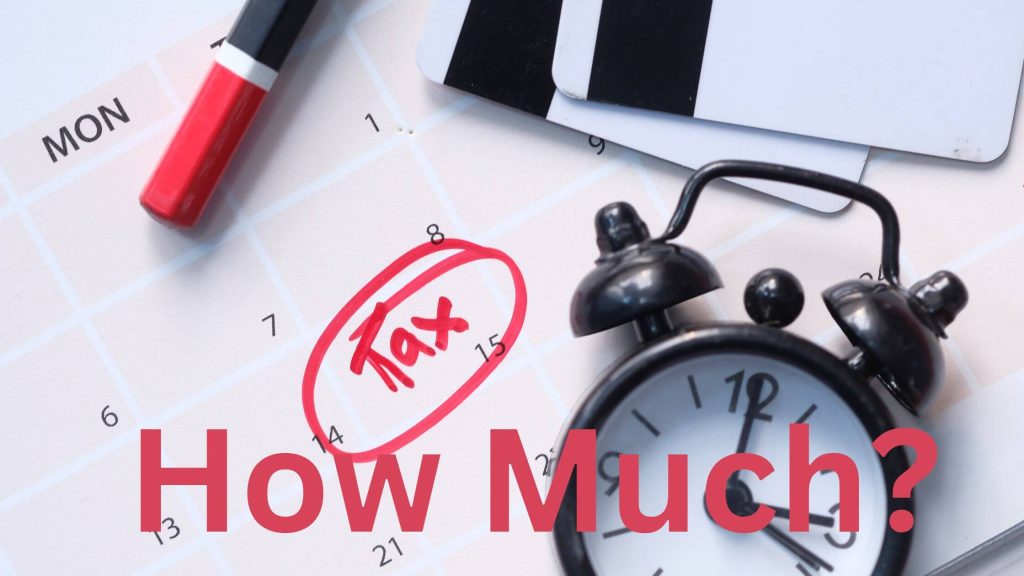How can I escape tax legally in Kenya?
Intro
Are you tired of paying high taxes in Kenya? Do you feel like you\’re not seeing the benefits of your hard-earned money due to hefty tax deductions? Well, you\’re not alone. Many individuals and businesses in Kenya struggle with the burden of high taxes. But there is a solution – legal tax planning. By using legitimate tax avoidance strategies in Kenya, you can reduce your tax burden and retain more of your income. In this blog post, we will discuss some effective tax avoidance strategies in Kenya that can help you say goodbye to high taxes and hello to more financial stability.
Understanding the Difference between Tax Evasion and Tax Avoidance
Tax evasion and tax avoidance are two terms that are often used interchangeably, but they have distinct meanings and consequences. Understanding the difference between the two is crucial for anyone looking to legally reduce their tax burden in Kenya.
Tax evasion refers to the illegal practice of intentionally avoiding paying taxes that are owed. It involves deliberate misrepresentation of income, inflating deductions, or hiding assets to lower tax liability. Tax evasion is a criminal offense and can result in fines, penalties, or even imprisonment.
On the other hand, tax avoidance is a legal practice that involves using legitimate strategies to minimize tax liability. It takes advantage of tax exemptions in Kenya, Kenyan tax deductions, and other incentives provided by the government. Tax avoidance focuses on optimizing corporate tax in Kenya or individual tax payments while still adhering to the law.
It is important to note that tax avoidance is within the boundaries of the law, while tax evasion is not. By understanding this distinction, you can ensure that you are taking the right steps to reduce your tax burden legally and ethically.
In the following sections of this blog post, we will explore various tax avoidance strategies in Kenya, including taking advantage of personal relief, exploiting tax-deductible expenses, maximizing retirement benefits schemes, making use of capital allowances, utilizing loss carry forward provisions, and the benefits of hiring a qualified tax advisor.
Stay tuned to discover the tips and tricks to legally reduce your tax payments and retain more of your hard-earned money.
Taking Advantage of Personal Relief
Are you aware of the personal relief options available to you in Kenya? Taking advantage of personal relief is a smart way to legally reduce your tax burden and retain more of your hard-earned money. Personal relief refers to the tax exemptions in Kenya that individuals can claim to reduce their taxable income. These exemptions are provided by the government and are designed to alleviate the tax burden on individuals and families.
There are several types of personal relief that you can take advantage of to minimize your tax liability. One common form of personal relief is the basic personal relief, which is a fixed amount deducted from your taxable income. In Kenya, the basic personal relief for residents is Ksh. 28,800 per year. This means that if your annual income is Ksh. 2,000,000, your taxable income will be reduced by Ksh. 28,800 before calculating the tax payable.
In addition to the basic personal relief, there are other types of personal relief available, such as relief for dependents, relief for elderly or disabled persons, and relief for education expenses. By carefully evaluating your eligibility for these relief options and claiming them on your tax returns, you can significantly reduce your tax liability. There are other tax-saving strategies such as corporate tax optimization in Kenya that can also help in reduction of tax payable
Exploiting Tax Deductible Expenses
Exploiting tax deductible expenses is a savvy strategy for legally reducing your tax burden in Kenya. By understanding the various Kenyan tax deductions available to you, you can maximize your savings and retain more of your hard-earned money.
One key aspect of exploiting tax deductible expenses is keeping meticulous records. Make sure to keep track of all your business-related expenses, such as office supplies, travel expenses, and professional development costs. These expenses can be deducted from your taxable income, lowering the overall amount you owe in taxes. Additionally, don\’t forget to include any personal expenses that may qualify for tax deductions, such as medical expenses or charitable donations.
Another important tax-saving tip is to take advantage of capital allowances. Capital allowances allow you to deduct the cost of acquiring and improving certain assets, such as machinery or vehicles, from your taxable income. By properly identifying and claiming these allowances, you can significantly reduce your tax liability.
Lastly, consider optimizing your corporate tax in Kenya. Consult with a qualified tax advisor who can help you navigate the complex tax laws and identify potential areas for savings. They can provide invaluable insights and expertise, ensuring that you are taking full advantage of all available tax incentives and deductions.
By exploiting tax deductible expenses, understanding Kenya tax-saving tips, and exploring corporate tax optimization Kenya, you can effectively reduce your tax burden and keep more money in your pocket. With proper planning and the right strategies in place, you can say goodbye to high taxes and hello to financial stability.
Maximizing Retirement Benefits Scheme
Maximizing your retirement benefits scheme is an essential strategy for legally reducing your tax burden in Kenya. Planning for retirement not only secures your future but also provides tax advantages that can help you retain more of your hard-earned money.
In Kenya, there are various retirement benefits schemes available, such as the National Social Security Fund (NSSF) and private pension schemes. By actively participating in these schemes, you can take advantage of the tax incentives they offer.
Contributions made to retirement benefits schemes are tax-deductible, meaning they can be subtracted from your taxable income. This reduces the overall amount of tax you owe, allowing you to retain more money in your pocket. It\’s important to note that there are limits to the amount of contributions that can be deducted, so it\’s wise to consult with a qualified tax advisor to maximize your benefits within the legal boundaries.
Additionally, the income earned within retirement benefits schemes is tax-exempt until the funds are withdrawn during retirement. This tax-free growth allows your retirement savings to grow faster over time.
By maximizing your contributions to retirement benefits schemes and taking advantage of the tax benefits they offer, you can effectively reduce your tax liability and ensure a financially secure future. Remember to consult with a qualified tax advisor to understand the specific rules and regulations surrounding retirement benefits schemes and to receive personalized Kenya tax-saving tips.
Making Use of Capital Allowances
Are you looking for a way to legally reduce your tax burden in Kenya? Making use of capital allowances is a smart strategy that can help you achieve just that. Capital allowances allow you to deduct the cost of acquiring and improving certain assets from your taxable income. By identifying and claiming these allowances, you can significantly lower your tax liability and retain more of your hard-earned money.
There are several types of capital allowances available in Kenya, such as initial allowance, annual investment allowance, and industrial building allowance. These allowances can be claimed on assets such as machinery, equipment, vehicles, and buildings. By carefully evaluating your business needs and identifying eligible assets, you can take advantage of these allowances and reduce your tax liability.
To maximize the benefits of capital allowances, it is important to keep meticulous records of your asset acquisitions and improvements. This documentation will help you accurately calculate the allowances you are eligible for and ensure that you are fully compliant with tax regulations.
By making use of capital allowances, you can effectively reduce your tax burden in Kenya while still operating within the boundaries of the law. Remember to consult with a qualified tax advisor who can guide you through the process and ensure that you are optimizing your tax savings. With the right strategies in place, you can say goodbye to high taxes and hello to financial stability.
Utilizing Loss Carry Forward Provision
Are you familiar with the concept of loss carry forward provision? If not, you\’re missing out on a valuable tax-saving strategy in Kenya. Utilizing the loss carry forward provision allows you to offset current losses against future profits, resulting in reduced tax liability.
Here\’s how it works: let\’s say your business incurs a loss in a particular financial year. Instead of letting that loss go to waste, you can carry it forward and deduct it from your profits in future years. This means that when your business starts making profits again, you can offset them against the losses from previous years, effectively reducing your taxable income.
By utilizing the loss carry forward provision, you not only lower your tax liability but also provide a safety net for your business during challenging times. It allows you to recover some of the financial setbacks by reducing the tax burden when you regain profitability.
To take advantage of this provision, make sure to maintain accurate records of your business losses and consult with a qualified tax advisor. They can guide you through the process and help you optimize your tax savings.
By utilizing the loss carry forward provision, you can legally reduce your tax burden and pave the way for financial stability for your business. Don\’t overlook this valuable tax-saving strategy in Kenya.
Hiring a Qualified Tax Advisor
Navigating the complexities of the Kenyan tax system can be daunting, especially when you\’re trying to legally reduce your tax burden. That\’s where a qualified tax advisor can make all the difference. By hiring a professional who specializes in tax planning and optimization, you can ensure that you are taking full advantage of all available tax incentives and deductions.
A qualified tax advisor brings expertise and knowledge to the table, guiding you through the intricate tax laws and regulations. They can analyze your financial situation, identify areas for potential savings, and create a personalized tax strategy that suits your specific needs. They can help you understand the intricacies of tax exemptions in Kenya, Kenyan tax deductions, and other tax-saving strategies.
Not only does a tax advisor save you time and effort, but they also provide peace of mind. With their assistance, you can be confident that you are compliant with tax laws, avoiding any potential legal issues or penalties.
When hiring a tax advisor, look for someone who is experienced, reputable, and knowledgeable in Kenyan tax laws. They should have a track record of success and a deep understanding of the intricacies of the tax system. By entrusting your tax planning to a qualified professional, you can say goodbye to high taxes and hello to financial stability with confidence.

